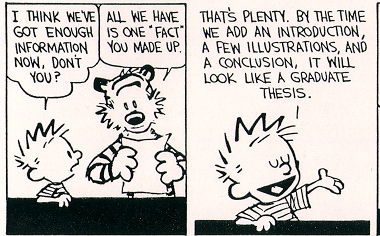There is an interesting debate on this question over at the Guardian. Following the terror attack at Westgate Giles Foden made the following claim:
In Kenya crime and terrorism are deeply linked, not least by the failure of successive Kenyan governments to control either……… These attacks are part of a spectrum of banditry, with corruption at one end, terrorism at the other, and regular robbery in the middle. Some Kenyans will feel that the conditions in which the attacks have happened have arisen because of economic growth in a vacuum of governance. Money that should have been spent on security and other aspects of national infrastructure has been disappearing for generations.
Two days ago the Kenyan Cabinet Secretary for Foreign Affairs, Amina Mohamed, responded to Mr. Foden with a denial of the charge that corruption in the country was in any way related to the failure of security forces to thwart the attack at Westgate. She reminded readers that:
The disasters of 9/11 or the more recent Boston marathon in the US and 7/7 in the UK – both highly developed countries – could hardly be blamed on corruption, so why Kenya? We do not recall Foden blaming corruption within the security agencies involved.
So what is the relationship between corruption and the likelihood of successful future terror attacks in Kenya?
There is no denying the fact that corruption is a huge soft underbelly in the Kenyan state’s fight against al-Shabaab. As I have pointed out before, the attack at Westgate showed Kenyans that AK-47s are not a menace only in the hands of cattle rustlers or carjackers. They can also be weapons of mass murder. So reports of police reservists renting out their AKs to criminals or being paid by the same criminals to look the other way do not inspire confidence in the government’s ability to prevent future attacks. Indeed last Friday Reuters reported that:
security officers, diplomats and experts describe a security apparatus that may be squandering skills built with the help of U.S., British and other trainers because suspects can buy their way through police checks and poor inter-agency coordination means dots are not joined up.
Add to this the fact that the country has about 600,000 light weapons and small arms in civilian hands (pdf) – including 127,000 illicit guns in Turkana County alone – and you begin to get the picture of why lax law enforcement, partly fueled by lack of funds and poor training and pay of regular police, but also by higher-ups’ venal proclivities, does not bode well for the likelihood of future Westgate-style attacks.
That said, to put terrorism on the same scale as carjacking would be a mistake, especially with regard to how the Kenyan state is likely to react to future threats of terrorism in the wake of Westgate. Obviously, due to entrenched interests and the administrative power (pdf) of the Civil Service the president cannot simply wish away corruption with a stroke of a pen. But he will be under tremendous pressure from the business community (which, in my view, is his number one constituency) to make sure that things that are singularly bad for business – like Westgate-style terror attacks – do not happen in the future.
Regularized murderous banditry in the less governed spaces in Kenya or carjackings in Kileleshwa are different from terror attacks in that the former are often localized “micro-events” on the national stage (even when they are of Baragoi or Tana River or Bungoma proportions) that rarely ever have systemic effects. Westgate, on the other hand, did have a systemic effect. And in a big way. As such I expect that the government will follow the trail and start closing loopholes wherever they are that might be exploited by terrorists in the future. This includes reforming the Kenya Police Service, to the extent that is necessary. It is hard for me to imagine that the president would risk failing to secure reelection just to keep a few corrupt officials happy.
So on balance Westgate might actually lead to a major push to rid critical state institutions of the scourge of corruption and to strengthen them with a view of increasing state capacity.
I could also be totally wrong.
There is a scenario in which the response to Westgate is al-Shabaab-focused and purely driven by the military (which presently has a huge PR problem with the Kenyan public and would want to save face) and other security agencies with little input from the political class. Such an eventuality would be a double bad because of the risk of erosion of civilian control of the military in Kenya (at least at the policy level) as well as a failure to reform critical domestic institutions to reduce the likelihood of future attacks (or attempts to bring back the bad old days…)
All this to say that on the off chance that someone asks you the question in the title of this post, the simple answer would be probably.

